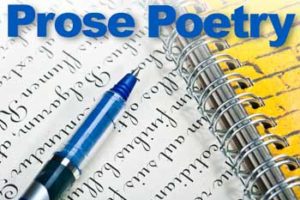
What is Prose Poetry?
Poetry is a vast landscape, populated with many different types of poems from free verse to sonnets to haiku. Prose poetry is unusual because its form deviates from the nature of poetry, which is writing in verse. Before we examine prose poetry, we first must understand the difference between prose and poetry. Prose Merriam-Webster’s Dictionary…Read More

Types of Rhymes in Poetry
We’re all familiar with rhyming poems. After all, these are the first poems most of us encounter as children, from the delightful stories of Dr. Seuss to the hilarious poetry of Shel Silverstein. People often think rhyming poems are rigid, conforming to strict meter and perfect rhymes at the end of every line, but within…Read More
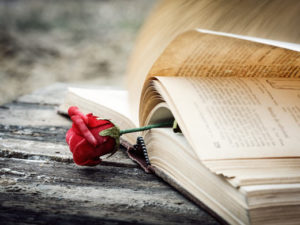
Communicating with Poetry: The Search for Deeper Meaning
The search for deeper meaning in a poem implies that it might contain a hidden message. But poetry is not coded messaging; it’s artful communication. It’s more useful to ask what a poem communicates than to ask what it secretly means. Some poems are straightforward; there’s no interpretation to be made because they are clear…Read More
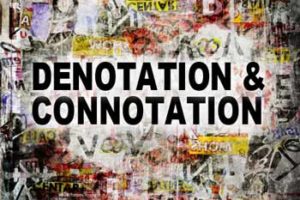
Denotation and Connotation in Poetry Writing
Most people go through life using language haphazardly. That’s how we get words like irregardless, which has the exact same meaning as regardless. But writers, and especially poets, don’t have the luxury of throwing words around indiscriminately. Clear and compelling prose and verse demand that we pay due diligence to the words we choose. We…Read More
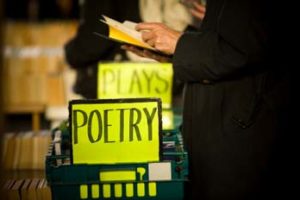
36 Poetry Writing Tips
Poetry is the most artistic and liberating form of creative writing. You can write in the abstract or the concrete. Images can be vague or subtle, brilliant or dull. Write in form, using patterns, or write freely, letting your conscience (or subconscious) be your guide. You can do just about anything in a poem. That’s…Read More

Poetry Writing Ideas and Activities
A poem can come out of nowhere and land on the page, fully formed, in just a few minutes. A poem can also be the result of hours (or weeks) of laboring over line breaks, word choices, images, and rhythm. Poems are funny little things, appearing out of nowhere and disappearing for no apparent reason….Read More

Poetry: Making Music with Words
Most writers are primarily concerned with the meaning of the words they choose. Is the language precise and accurate? Do the words provide the best connotation for what the writer is trying to communicate? Does the language show, rather than tell? But poets take language a step further and push it into the realm of…Read More
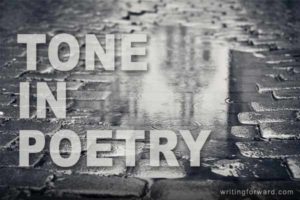
How to Construe and Convey Tone in Poetry
In literature, tone is the mood, attitude, or emotional sensibility of a written work. In poetry, tone expresses the narrator’s disposition toward the poem’s subject, the reader, or the narrative itself. We might describe a poem’s tone as irreverent, relaxed, sarcastic, solemn, jubilant, or desperate. Tone can be any emotion or state of mind, and a…Read More
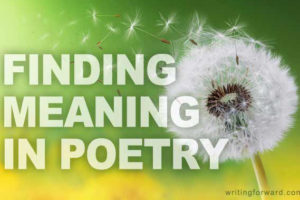
Finding Meaning in Poetry
We humans are programmed to find meaning in everything. We find patterns where none exist. We look for hidden messages in works of art. We yearn for meaning, especially when something doesn’t immediately make sense. Of course, art is open to interpretation, and some of the best works of art have produced a fountain of…Read More
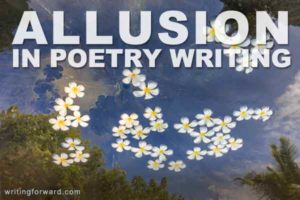
Using Allusion in Poetry Writing
As we read poetry and other forms of literature, we’ll inevitably come across allusions. An allusion is a reference to something else; it can be indirect or explicit. In poetry, most allusions refer to other works of art and literature or to historical persons or events. Cultural references are also common. Although allusion is a…Read More



